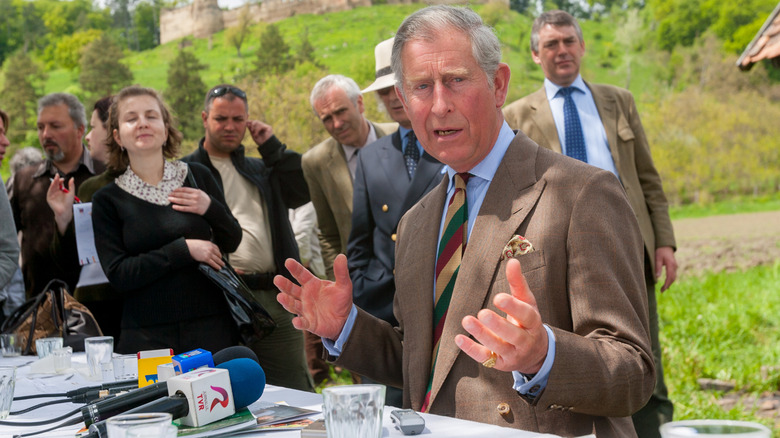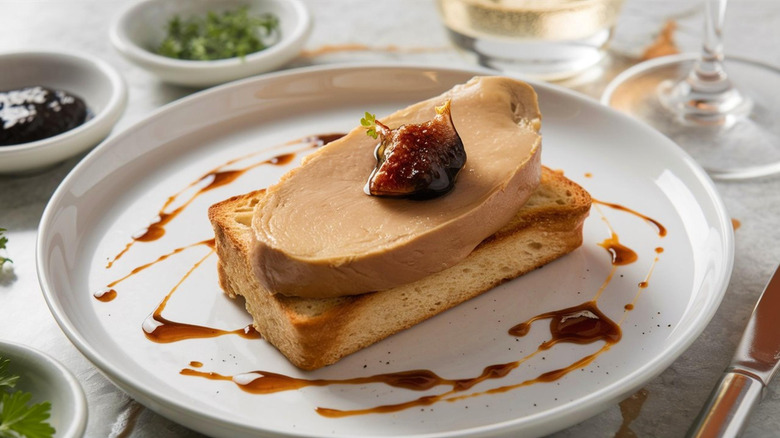The Controversial Luxury Food That King Charles Won't Eat
When you think of kings, it's hard not to visualize them sitting on a throne, covered in sumptuous furs and jewelry, being hand fed all sorts of delicacies and expensive treats. Foie gras, the fattened liver of a duck or goose, is certainly one of those royal snacks. Foie gras has a surprisingly long history that goes back to ancient Egyptian times, where evidence of gavage (the force-feeding process) was carved into walls. Later, Greeks and Romans adopted the practice of feeding geese figs and other rich foods to fatten up their liver. By the time the Renaissance rolled around, foie gras was fully ensconced into European haute cuisine. Today, France reigns supreme as both producer and protector of the controversial luxury good, even encoding it into their laws as a protected cultural and gastronomic heritage.
King Charles III, on the other hand, has been an advocate for sustainable farming and animal welfare for years, since long before it became mainstream. In 1985, he actually converted one of his estates to organic farming, banning all synthetic fertilizers and pesticides and emphasizing crop rotation and health. Despite being publicly ridiculed in the media at the time, His Royal Highness even founded an organic food brand in 1990 called Duchy's Originals, whose profits he uses to this day to fund his charitable works. He is also known to drive an Aston Martin that runs on biofuel. So, it's perhaps no surprise that Charles, even though he's Head of the Commonwealth, would turn his nose up at the fattened goose liver.
Why King Charles banned foie gras
Foie gras is one of the most controversial animal products out there, primarily because its production involves force-feeding geese or ducks, often in tight quarters, ballooning their liver to 10 times its original size, before the bird is slaughtered at around 100 days of age. In 2004, California passed a law banning the production and sale of foie gras. In 2019, New York City passed their own ban, but it has since been overturned — much to the delight of nearby duck farmers.
Back when King Charles was still a prince, he had already banned the fatty liver in his own royal residences, as a part of his overall push for higher welfare standards for animal husbandry. Once he was upgraded to king in 2022 (foregoing the traditional lamprey pie at his coronation for environmental reasons), he further reaffirmed his position with a letter to PETA announcing no foie gras would be bought or sold across the Royal Household, including its many residences throughout the U.K. Today, there's a ban on the production of foie gras in the U.K., but not its import or sale. Though King Charles may not be everyone's cup of tea, his decades-long dedication to regenerative agriculture and animal welfare is certainly admirable. As a global figure, he continues to use his platform today to advocate for systemic changes to global agriculture, and is currently the royal patron for the Royal Society for the Prevention of Cruelty to Animals (RSPCA) and the Dogs Trust.

